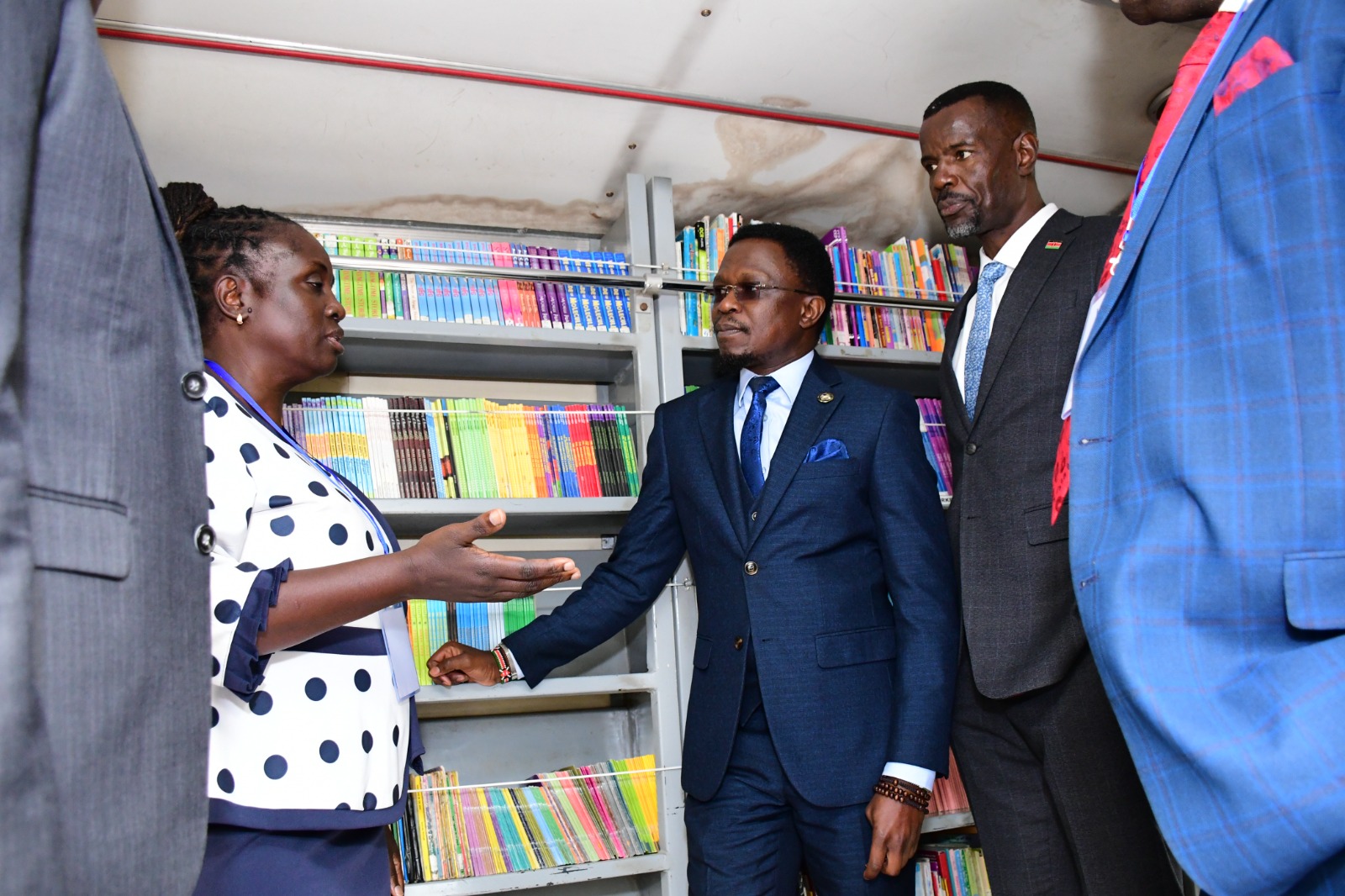advertisement
Kenya Launches Its First Virtual Library, VTabu

Kenya has launched its first virtual library, worth $1.7 million, containing over 200,000 digitised books, periodicals, research papers, and government publications.
Dubbed Vtabu, the virtual library was launched at Maktaba Kuu premises in Nairobi by Youth Affairs, Sports, and the Arts Cabinet Secretary in Kenya, Ababu Namwamba. The CS said that Vtabu is accessible from any internet-enabled device globally and hosts downloadable e-books for offline reading.
The virtual library has an assortment of resources accessible for free, especially children’s content and general information e-books, and journals and attracts a nominal daily membership fee of Sh20 fee payable via wireless payment platforms.
advertisement
One can also pay weekly at Sh100, monthly at Sh500, bi-annual at Sh1,500 and an annual membership fee is set at Sh2500.
“The Virtual Library with its Competency Based Curriculum (CBC) materials will greatly support young learners to easily identify their talents and work to nurture these skills as their future career opportunities. The Talanta Hela initiative is meant to promote youth’s creativity and talents and the virtual library is a platform they can use to monetise their literary works. I, therefore, urge the relevant Ministries, Departments and Agencies to partner with Kenya National Library Services (KNLS) in promoting knowledge sharing in schools, higher learning institutions and TVETs,” the CS said.
During the launch, the CS also unveiled a tier-two data centre that state agencies and other public institutions can lease cloud storage services and a digitisation hub where Kenyans can seek to upload their books, records, newspapers or photographs.
advertisement
E-books for every subject covered in Pre-School, Primary, Junior and High School, as well as Tertiary and University levels, are available on Vtabu. Books on any topic, both fiction and nonfiction, have also been included.
Along with providing virtual library service, KNLS has also allowed government agencies and other organizations to use its data centre for cloud storage services and its digitization hub to digitize important records, images, and maps.